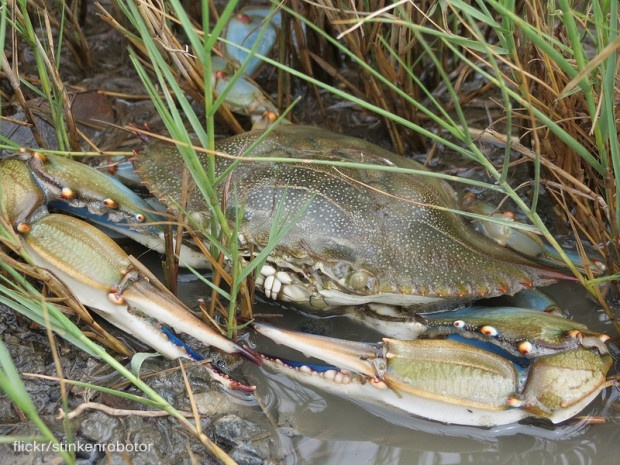We have much more to do and your continued support is needed now more than ever.
More Pollution for Chesapeake Blue Crabs?
After showing signs of a big comeback, blue crab numbers in the Chesapeake Bay are plummeting. This crustacean with sapphire-tinted claws is very sensitive to environmental and habitat changes—and officials were disappointed to see their numbers drop by more than 60% in 2013.

Polluted runoff is feeding these habitat destroying algal blooms—and much of the polluted runoff is coming from driveways, rooftops, parking lots and lawns. Water running off of hard surfaces is picking up motor oil and grease from cars, pet waste, weed killer and other pollutants and washing them into streams and rivers which flow into the Chesapeake.
Protecting Important Habitat
In recent years, Virginia and Maryland have taken steps to help blue crabs and clean up the Bay. Maryland passed a polluted runoff law that funds on-the-ground projects to reduce pollution by replacing failing infrastructure, restoring or enhancing stormwater management systems, and creating buffers and green space to filter runoff. Money for the local programs comes from a fee on hard surfaces that produce polluted runoff. The more pollution a property produces, the more the property owner pays!
But right now these important solutions for reducing pollution and helping blue crabs recover are at risk in the Maryland State Senate. Lawmakers may eliminate the very programs designed to keep polluted runoff out of the waters where blue crabs live.
We’re calling on Maryland state senators to keep this effective law in place and prevent polluted runoff from washing into streams and rivers, and poisoning habitat for blue crab and other wildlife.





















